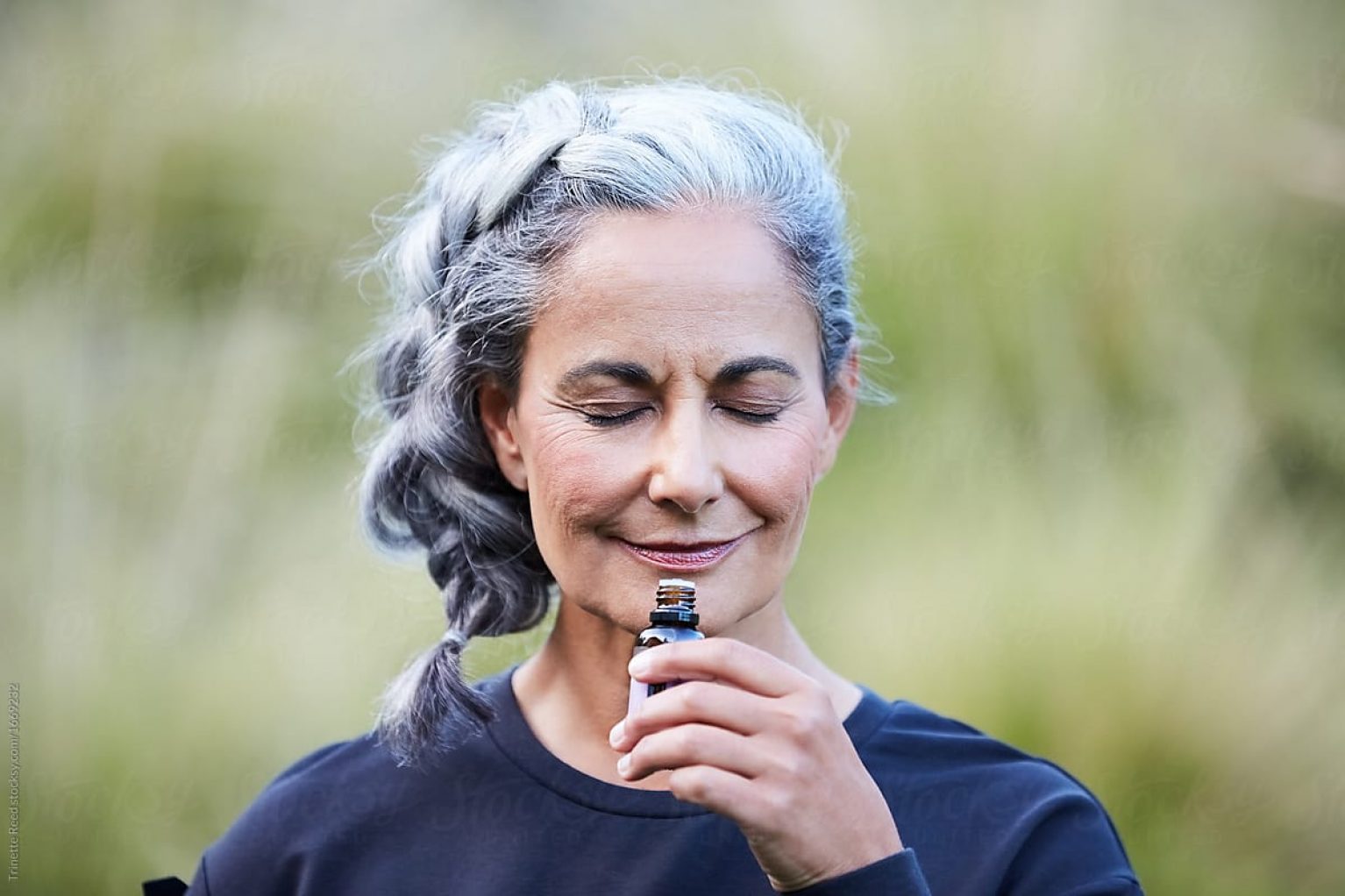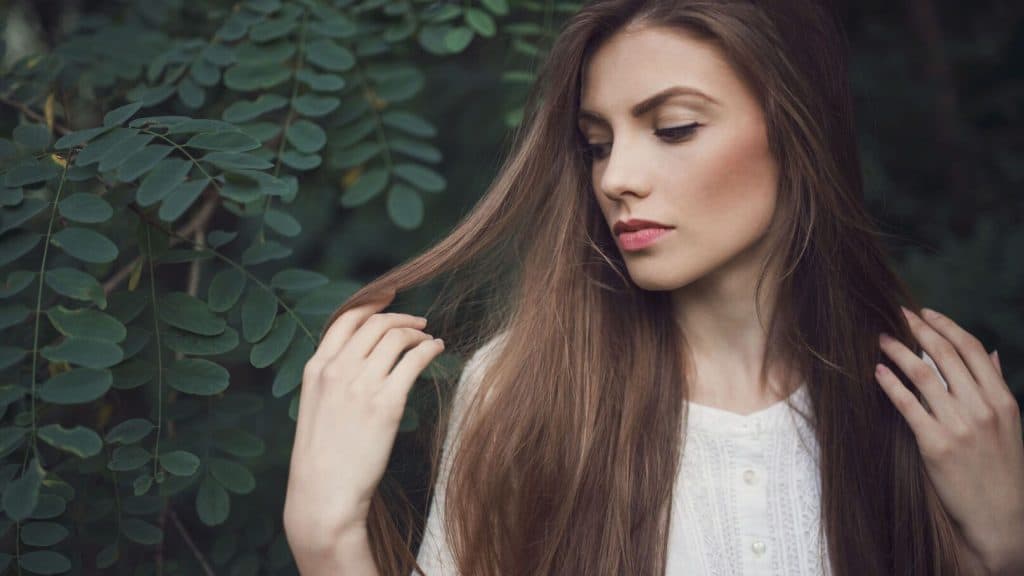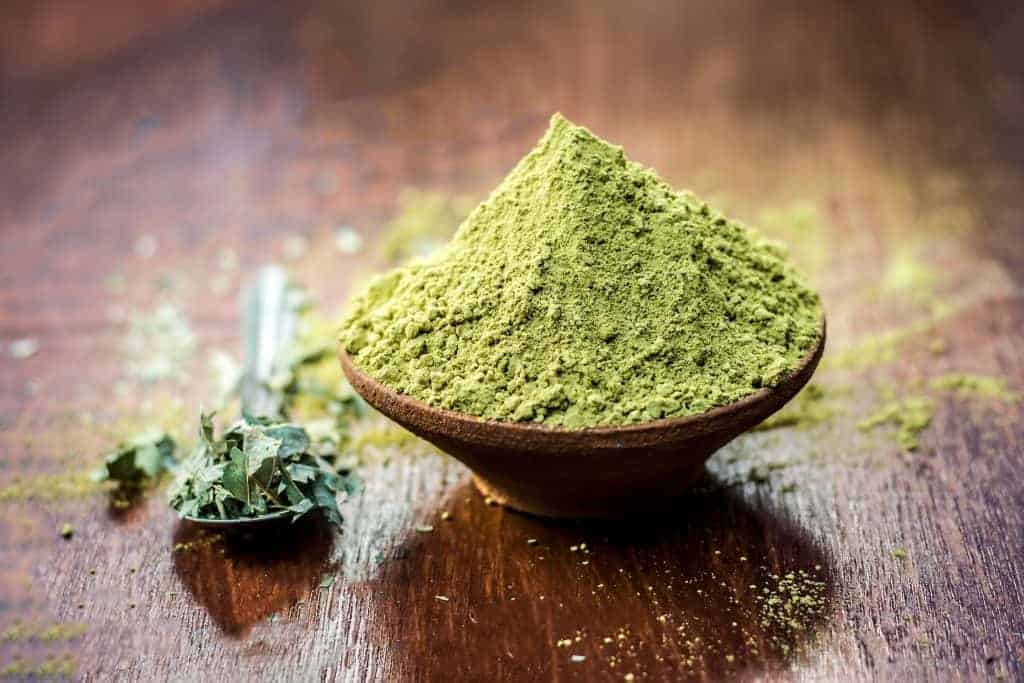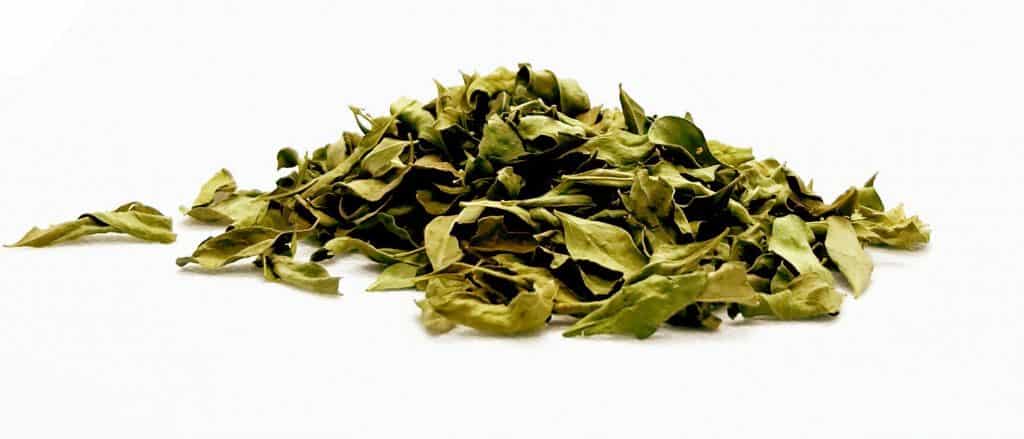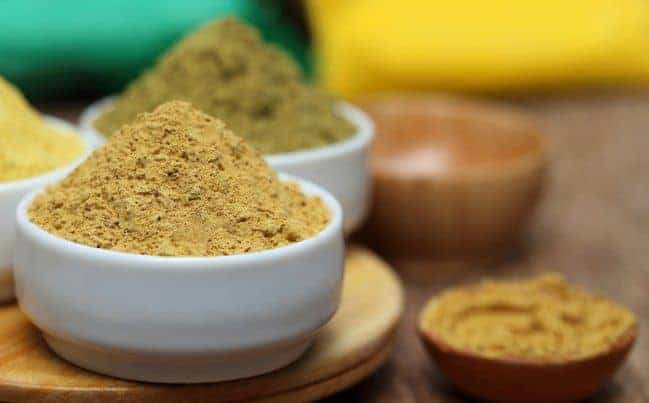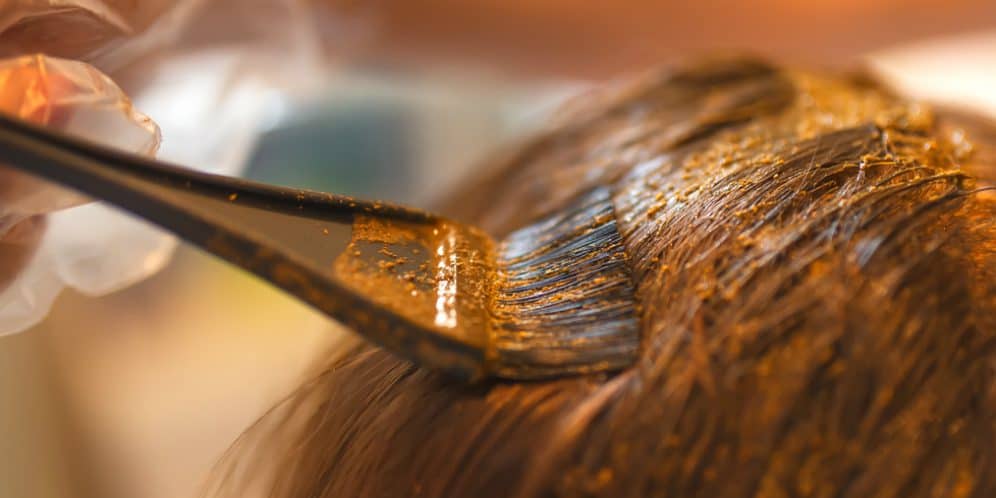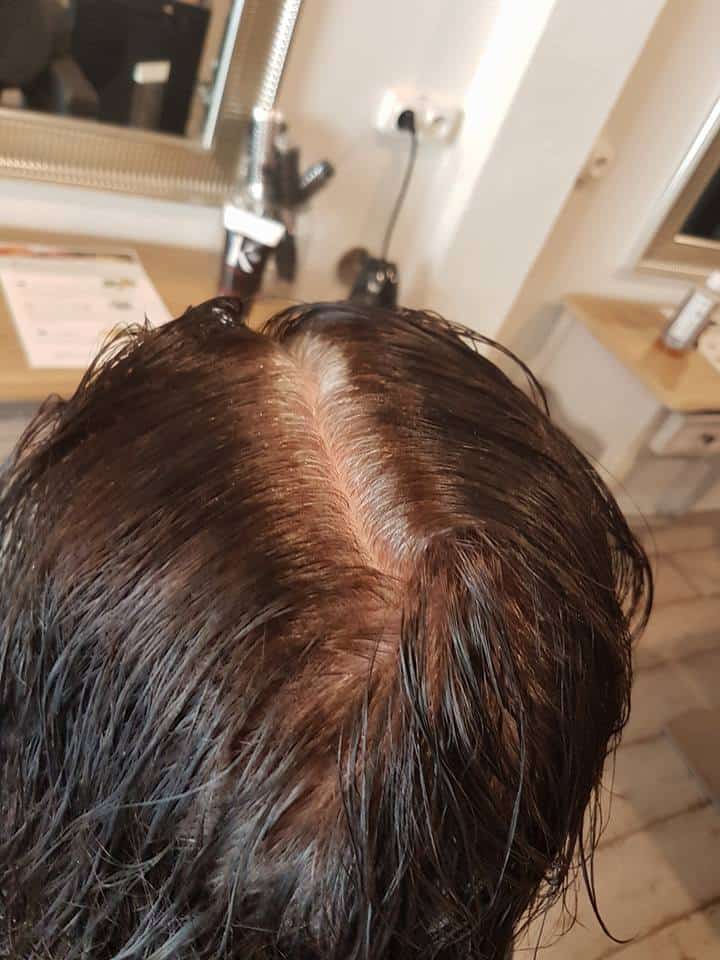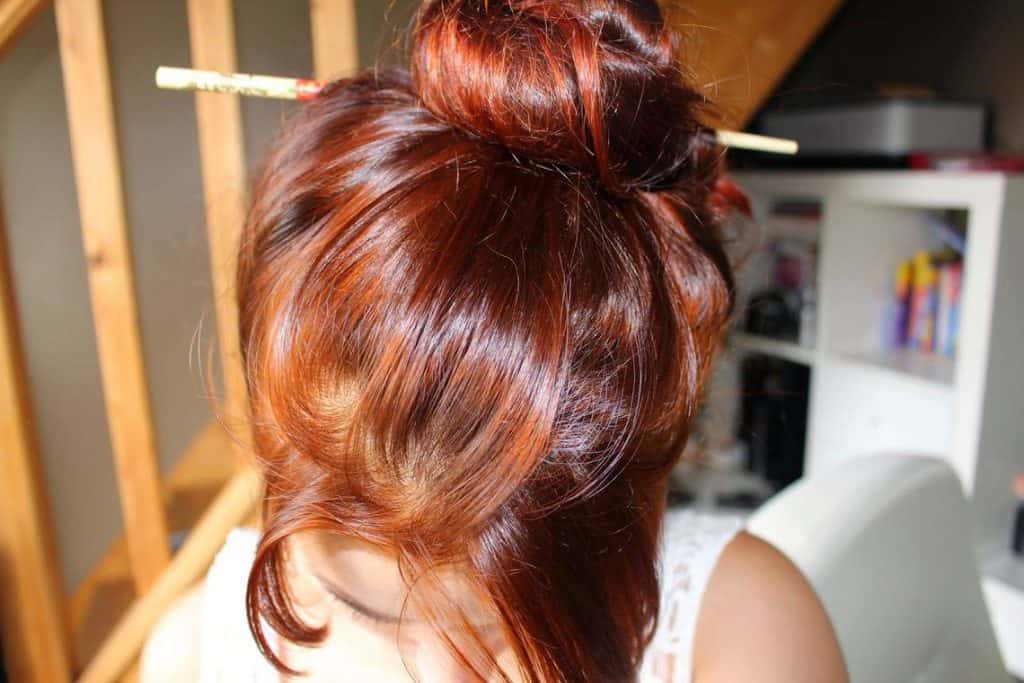Le henné en poudre gagne en popularité comme option naturelle pour colorer les cheveux, se présentant comme une alternative écologique aux teintures chimiques contenant de l’ammoniaque. Au contraire, le henné est doux pour les cheveux et le cuir chevelu, offrant une solution non seulement respectueuse de l’environnement mais aussi bénéfique pour la santé du cheveu.
Mais qu’en est-il des cheveux blancs ? Le henné est-il aussi efficace ?
Qu’est-ce que le henné ? Quelle est cette plante ?
Ces dernières années, le retour au naturel est à la tendance et devient surtout une nécessité.
En effet, la plupart d’entre nous préfèrent utiliser des produits sains et écologiques que ce soit en alimentation ou en cosmétique.
Cela est particulièrement valable en ce qui concerne les produits capillaires. La coloration au henné est l’une des colorations naturelles les plus plébiscitées, car elle est exempte de substances chimiques.
1. L’origine du henné pour les cheveux
La poudre de henné destiné à la coloration, est un produit 100 % naturel qui est obtenu par le séchage et la réduction en poudre des feuilles de la plante. Cette plante est appelée scientifiquement Lawsonia Inermis (famille des Lythraceae).
Il s’agit d’un arbuste odoriférant qui donne des fleurs blanches et qui peut atteindre jusqu’à un mètre de hauteur.
Son usage remonte à des millénaires (plus de 5 000 ans), dans plusieurs peuples antiques dont la civilisation minoenne et Mycènes.
D’après l’histoire, les traces les plus anciennes de son utilisation ont été d’abord découvertes en Afrique du Nord, précisément en Égypte.
La plante du henné était alors employée pour ses vertus médicinales (grâce au tanin) et odorantes.
Les Égyptiens utilisaient pour peindre leurs ongles et tout leur corps dans le but de faire baisser la température et aussi de se protéger contre le soleil.
D’ailleurs, les différentes parties (ses cheveux, ses pieds et ses mains) de la momie de Ramsès II étaient couvertes de cette plante.
Il y a environ 500 ans, le henné a fait son apparition en Inde, où il sert toujours pour embellir la femme avec des tatouages.
Les femmes indiennes l’utilisent aussi pour se laver les cheveux et leur apporter du volume.
Aujourd’hui, le henné possède un usage très varié, et il est aussi très connu pour son pouvoir de coloration sur les cheveux.
2. Les différents hennés et leur teinture
Il existe deux types de henné : le henné neutre et le henné naturel.
Les deux types de henné, le henné neutre (issu du Cassia obovata) et le henné naturel (issu du Lawsonia inermis), sont deux plantes complètement différentes.
Le henné neutre
Le henné neutre, qui provient des régions subtropicales, n’a pas pour fonction de décolorer les cheveux.
Cette sorte de henné est issue de la plante Cassia Obovata, famille des Cesalpiniaceae.
En effet, comme son nom l’indique, il ne colore pas les cheveux.
Il gaine les cheveux, les fortifie, les rend plus souples, leur redonne de la vigueur et de l’éclat.
Outre l’effet gainant sur la fibre capillaire, le henné neutre procure de nombreux bienfaits pour les cheveux :
- renforce le cheveu ;
- accélère la pousse ;
- régule la production de sébum ;
- assainit le cuir chevelu et agit contre les pellicules.
La coloration au henné naturel qui apporte une couleur
Il est issu de l’arbuste Lawsonia Inermis.
La coloration au henné naturel est fabriquée à partir d’une plante provenant de l’Inde et de la péninsule arabique et sert à colorer les cheveux.
Ce type de henné est utilisé pour la coloration naturelle des cheveux.
Composé également de tanin, il possède les mêmes propriétés que le henné neutre.
La poudre de henné naturel renferme une molécule appelée lawsone.
Il s’agit d’un pigment colorant qui peut produire différentes teintes telles que le rouge, l’orange, ou encore le marron.
Ces variations de teintes dépendent de plusieurs facteurs : l’origine du henné, la base et la nature des cheveux.
La concentration du lawsone dans le henné varie en fonction de son origine.
On distingue des hennés de différentes origines, à savoir le henné d’Égypte, le henné du Yé, le henné du Rajasthan (Inde), le henné de Gabès (Tunisie).
Ses feuilles, composées d’un pigment naturel rouge-orangé, enveloppent le cheveu et se fixent sur lui pour donner un reflet cuivré ou auburn à la chevelure.
Il se choisit en fonction de la couleur d’origine de la chevelure et du résultat désiré.
La coloration au henné : une couleur permanente et un allié naturel pour vos cheveux blancs
Les pouvoirs de la coloration au henné même sur les cheveux blancs
Le henné naturel peut avoir un effet surprenant sur vos cheveux. Voici les 3 choses à savoir sur cette coloration végétale.
Les teintes possibles avec le henné
Cette poudre 100 % naturelle, à laquelle on ajoute de l’eau pour former une pâte, peut apporter une coloration allant d’une couleur vive (comme le rouge ou l’orange) à des reflets cuivrés.
Si vous choisissez le henné d’Égypte, vous obtiendrez une nuance cuivrée lumineuse.
Si vous optez pour le henné du Rajasthan, vous aurez du cuivré intense, et pour le henné du Yemen, attendez-vous à une couleur très vive : l’acajou.
Ainsi, il vous donne de beaux reflets, il vous change totalement la couleur, le résultat dépendra des ingrédients ajoutés à la pâte.
Et pour obtenir une teinte spécifique, il est possible de mélanger les différents types de henné.
L’ajout d’autres plantes telles que les plantes tinctoriales (indigo, curcuma, garance, etc.) vous permet de vous teindre en cuivrée claire, en châtain, en marron ou en rouge foncé…
Il faut savoir que le henné ne peut pas éclaircir les cheveux.
Il est impossible de devenir blonde si vous êtes brune, car le henné n’est pas un produit décolorant.
La poudre de henné pour le soin des cheveux
Ce qui diffère le henné des colorations chimiques, c’est son pouvoir gainant.
Les pigments se déposent uniquement à la surface du cheveu, mais ne pénètrent pas dans les cuticules.
Ce qui permet d’apporter une protection supplémentaire aux cheveux, sans altérer sa nature.
Le henné procure aussi plus de volume aux cheveux fins et clairsemés.
Il agit en resserrant les écailles des cheveux grâce à son effet astringent.
Il renforce le cheveu et le fait briller.
En plus de colorer, le henné possède des propriétés contre les pellicules, il aide également à la régulation de la production du sébum.
Il contribue aussi à restaurer le PH du cuir chevelu. Rien de tel que le henné naturel pour colorer naturellement ses cheveux.
En ajoutant des plantes ayurvédiques au henné, vous obtiendrez un excellent mélange pour un résultat encore plus probant : des cheveux doux, brillants, et éclatants de santé.
Bref, une coloration faite au henné, apporte une couleur toujours riche et lumineuse.
Celle-ci ne sera jamais fade, même avec le temps.
La coloration permanente au henné et les cheveux blancs : le procédé de cette couleur
Le henné n’est pas uniquement fait pour se teindre les cheveux, il convient aussi pour masquer vos cheveux blancs.
Il permet de nuancer les mèches blanches et de jouer sur l’opacité de la couleur de base naturelle.
Une couvrante à 100% des cheveux blancs avec le henné.
Le henné atténue les cheveux blancs tout en nuançant la couleur naturelle de vos cheveux.
Il embellit l’ensemble de la chevelure avec des reflets et des teintes cuivrées.
Le henné est une plante qui va enrober les cheveux blancs solidement grâce à l’acidité.
La coloration au henné est une coloration permanente, elle reste sur le cheveu.
Elle dure dans le temps et peut s’éclaircir légèrement en été.
Sur l’ensemble de la chevelure, il apportera un reflet cuivré, auburn ou rouge selon sa provenance.
Différentes teintes selon les plantes utilisées avec la coloration végétale avec henné
Selon le pourcentage de cheveux blancs, le bio coloriste va venir ajouter d’autres poudres tinctoriales végétales.
En fonction du pourcentage de cheveux blancs et de votre couleur de base, le coloriste mélange au henné d’autres colorants végétaux naturels.
L’indigo par exemple, est associé au henné pour renforcer les nuances et foncer les cheveux naturellement bruns.
Notez que la coloration parfaite des cheveux blancs après l’application du henné n’est pas immédiate : il faut laisser le temps aux pigments de brûler.
Deux jours à l’air libre suffisent en général pour que la couleur du cheveu évolue dans des teintes plus foncées.
Différentes couleurs et colorations possibles selon le nombre d’application
On peut faire une application ou deux applications.
Une seule application permet d’avoir une couleur du blond jusqu’au cuivré.
Si le coiffeur fait deux applications, il n’appliquera pas deux fois le même mélange.
L’objectif de deux applications est d’avoir une couleur foncée.
En effet, la première couleur en première application permet de faire une accroche sur le cheveu.
La deuxième application permettra de terminer la couleur.
Comment fixer la couleur et la teinture au henné durablement sur les cheveux blancs ?
Pour que la coloration au henné reste le plus longtemps possible, il est conseillé d’attendre deux ou trois jours avant de se laver les cheveux.
Pendant cette période, les pigments se libèrent et se fixent grâce à l’acidité de la kératine du cheveu.
Il est important ensuite d’entretenir et de soigner votre coloration avec la pose de masques d’huiles végétales une fois par semaine.
Le henné change la nature de la fibre capillaire en la fortifiant, en la gainant.
Le masque va assouplir la fibre et lisser les écailles qui ont permis aux pigments de s’accrocher.
Le résultat est une chevelure lumineuse, volumineuse, soyeuse et sans cheveux blancs.
Pour ne prendre aucun risque de mauvaise surprise, mieux vaut faire confiance aux professionnels. Vous pouvez faire votre diagnostic en ligne pour obtenir votre couleur personnalisée !
La coloration au henné est-elle bonne pour les cheveux ? Pour les cheveux blancs aussi ? (vidéo)
Le henné est une plante naturelle qui est beaucoup utilisée dans les pays orientaux pour se teindre les cheveux.
Cependant avec une mauvaise utilisation, elle présente quelques inconvénients détaillés ici par Charley :
- Le dessèchement du cheveu à long terme
- L’altération du cheveu en cas de henné de mauvaise qualité
- Les limites dans les possibilités de couleurs
Le henné est-il mauvais pour les cheveux ? Et pour les cheveux blancs ?
Le henné : un produit qu’il faut choisir avec soin
Peu de gens connaissent vraiment le henné.
Qu’en est-il de cette plante ? Quelles sont ses propriétés ?
Existe-t-il un henné mauvais pour les cheveux ? Pourquoi choisir du henné bio comme celui que propose Biocoiff’ ?
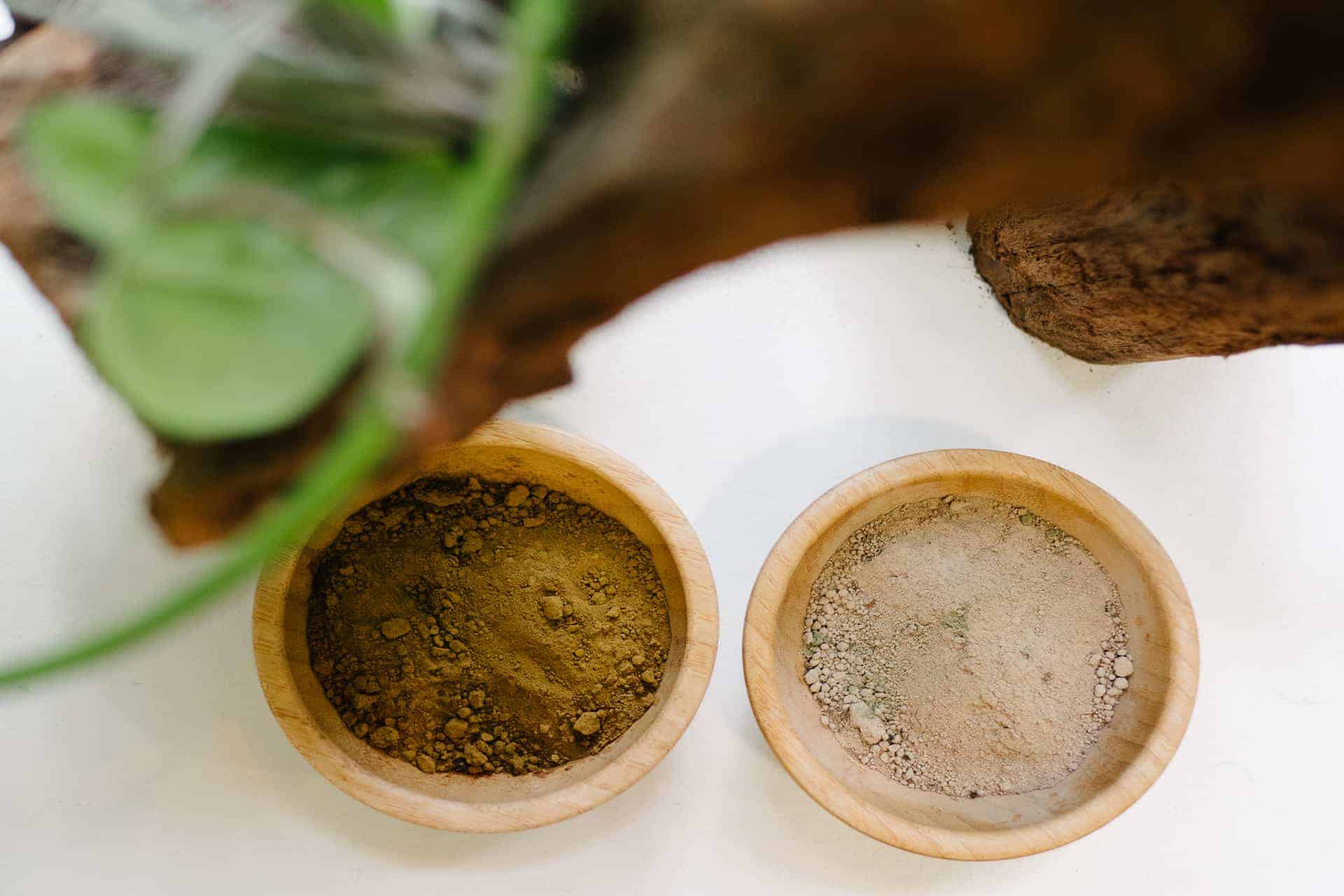
Choisir un henné 100 % naturel
Le henné mauvais pour les cheveux contient du sodium picramate (sels métalliques) considéré comme toxique. Il peut également contenir du paraphénylènediamine (PPD), susceptible de provoquer des allergies.
Pour obtenir une jolie coloration au henné sans altérer la santé de la chevelure, il est essentiel de se procurer un henné 100 % pur et sans additif.
Idéalement labellisé BIO ou COSMOS ORGANIC, comme celui proposé par Biocoiff’.
Le henné noir, qu’est-ce que c’est ?
Ce qu’on appelle henné noir est en fait de l’indigo. Il ne provient pas du tout de la plante henné.
L’indigo est aussi une plante mais qui permet-elle d’obtenir du noir. Le henné noir donc l’indigo est aussi une plante tinctoriale qui permet de colorer les cheveux de manière foncée. Cette plante permet aussi d’avoir une coloration permanente. Elle est aussi capable de couvrir et de cacher les cheveux blancs à 100%.
Biocoiff’ offre un plus grand choix de couleur
Il faut savoir aussi qu’avec le henné, il y a des limites dans les possibilités de couleurs.
Il est plus avantageux de le combiner à d’autres ingrédients et à d’autres plantes.
Par exemple, les spécialistes de Biocoiff’ utilisent dans leur formule de coloration du henné mais également d’autres plantes et ingrédients naturels.
Biocoiff’ peut ainsi proposer à leurs clientes un plus large éventail de teintes.
Ces couleurs sont personnalisées en fonction de leur couleur naturelle et de la quantité de cheveux blancs qu’elles ont.
Vous allez adorer
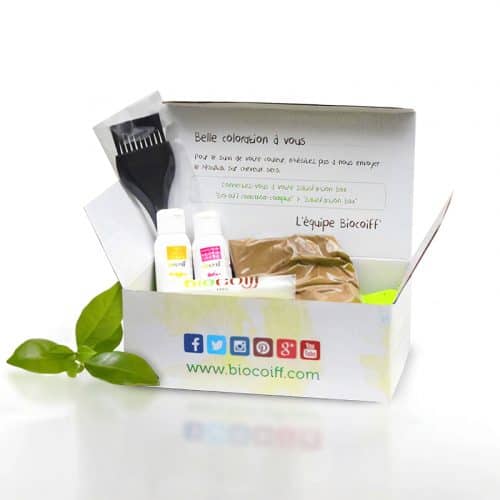


 Coloration Végétale
Coloration Végétale
 Balayage minéral
Balayage minéral
 Soins Capillaires
Soins Capillaires
 Coupe
Coupe
 Diagnostic gratuit
Diagnostic gratuit
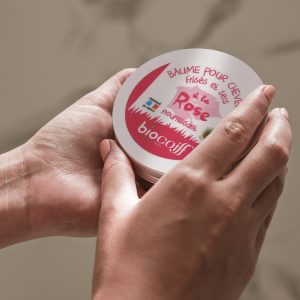 Accueil E-boutique
Accueil E-boutique
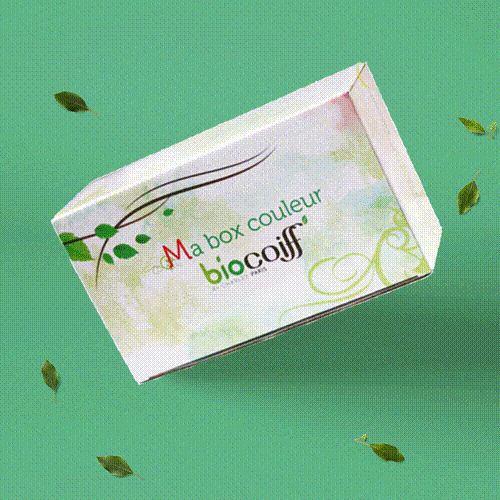 Box Couleur
Box Couleur
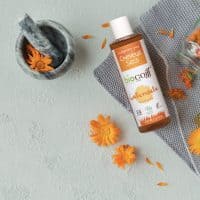 Shampoings
Shampoings
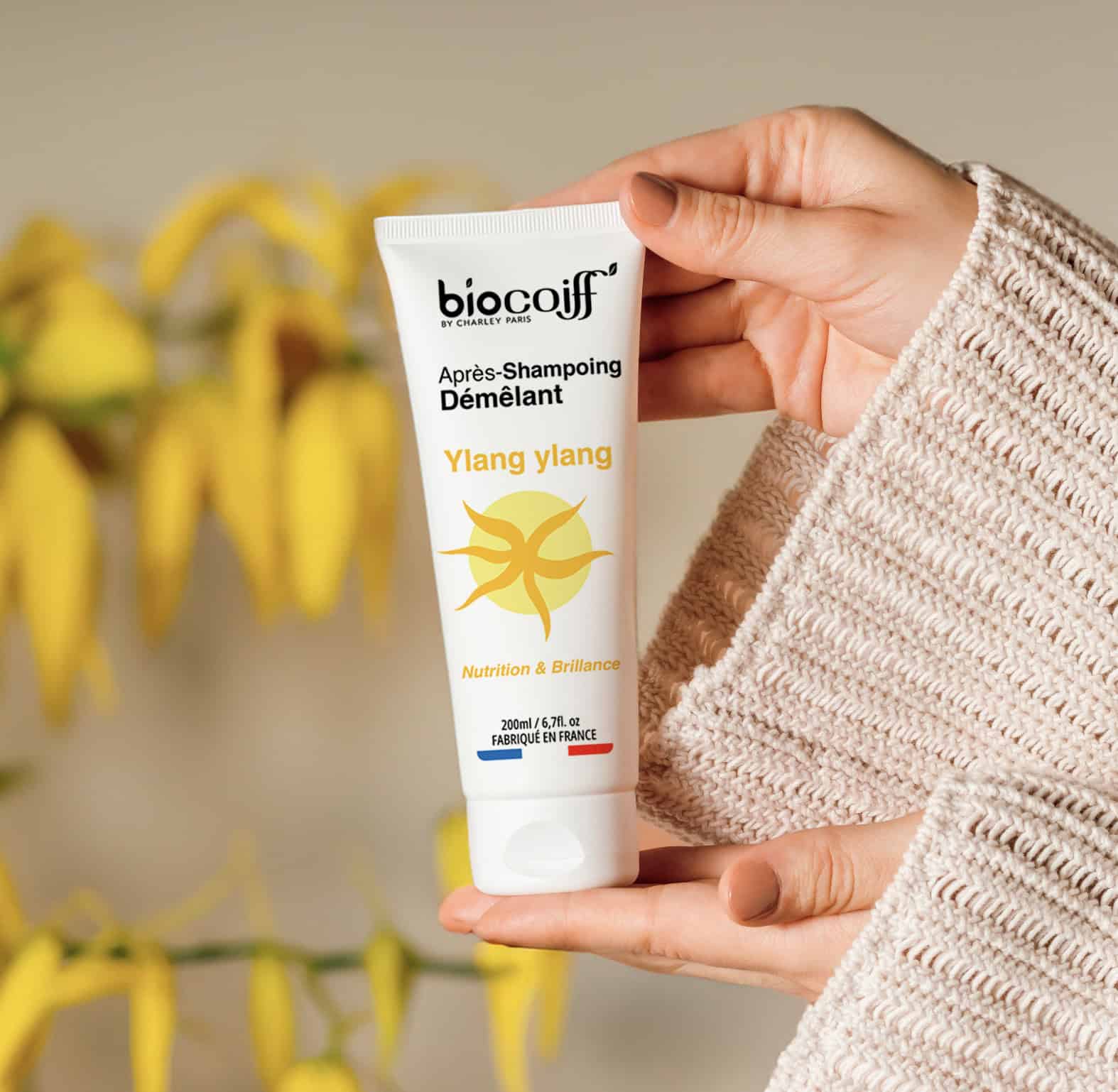 Soins
Soins
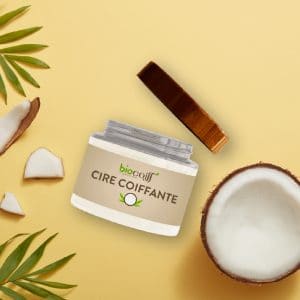 Coiffants
Coiffants
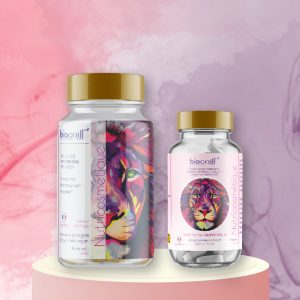 Nutricosmétiques
Nutricosmétiques
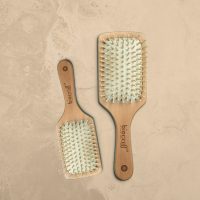 Accessoires
Accessoires
